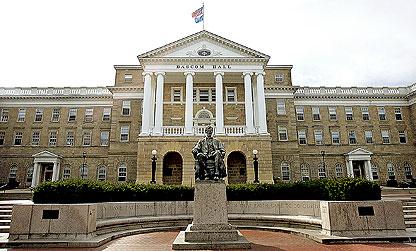For the first time in Wisconsin history, the United Nations Educational, Scientific and Cultural Organization awarded a University of Wisconsin faculty member as a chair for gender, well-being and culture of peace.
The chair designated to UW last week is a yearly award given to universities or other research institutions that exemplify one of UNESCO’s fields of competence, according to the U.S. Department of State.
The gender chair at Wisconsin is the first in North America that will interrelate gender, well-being and a culture of peace through researchers, advocates for knowledge and collaboration, according to a UW statement Tuesday.
UNESCO has designated more than 670 chairs worldwide in its effort to encourage international cooperation between universities, 12 of which are chairs on gender, according to UW’s statement.
The chair will be jointly shared between two UW-affiliated researchers, Araceli Alonso and Teresa Langle de Paz, Judy Houck, chair of UW’s Department of Gender and Women’s Studies said.
Alonso is a senior lecturer at UW in gender and women’s studies and Women and Well-being in Wisconsin and the 4W director for Gender Clinical Practice and the Health Sciences. Langle de Paz is co-director of Women’s Knowledge International at the Foundation for a Culture of Peace and an honorary fellow for the Women’s Research Center at UW’s Department of Gender and Women’s Studies.
Houck said the chair will bring international attention to the university’s groundbreaking work in gender and women’s studies. The recognition demonstrates the Department of Gender and Women’s Studies’ quality of research and excellence, she said.
“It’s a placeholder — it’s like Michelin star in terms of scholarship,” Houck said. “It marks us as a place that is doing first-rate scholarship in gender and well-being research.”
This recognition should help the Department of Gender and Women’s Studies begin other exciting, innovating international projects, Houck said.
Houck said Alonso also founded the Health by Motorbike Project in Kenya and currently co-leads a 4W project to end sex trafficking and exploitation.
“The UNESCO chair can take our work at UW-Madison a step further into a global arena, fostering transnational cooperation between feminist scholars, gender issues professionals, institutions, networks, policy makers and organizations,” Alonso said in a UW statement.
Alonso has collaborated with other UNESCO chairs on gender and development and welcomes the chance for further collaboration locally, regionally, nationally and globally.
“Alonso and Langle de Paz are poised to work their international networks to really improve the lives of women across the globe,” Houck said.


